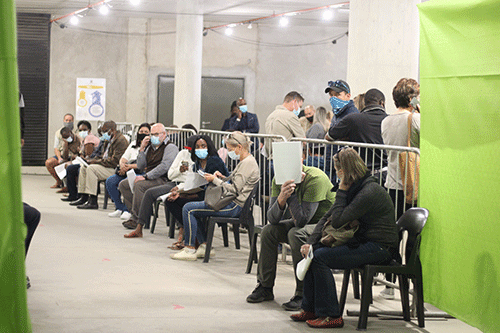Universal health coverage remains a distant dream for many.
At least half of the planet’s population do not receive the health services they need.
About 100 million people are pushed into extreme poverty every year because of out-of-pocket spending on health.
The World Health Organisation (WHO) describes universal health coverage (UHC) as all people having access to the health services they need as well as when and where they need them – without financial hardship.
It includes the full range of essential health services – from health promotion to prevention, treatment, rehabilitation and palliative care.
The Namibian government, through Cabinet, has approved the roadmap for the development of UHC in Namibia.
Cabinet has approved the structure that will provide a mechanism to promote multi-stakeholder engagement and national dialogue on UHC as part of the pathway to it.
The different components of the structure are working together to finalise the development of the UHC policy – and once finalised, participate in monitoring the progress of its implementation.
The governance structure to oversee the development of the UHC policy consists of three layers.
This includes a Cabinet committee on public service, chaired by Prime Minister Saara Kuugongelwa-Amadhila.
The Cabinet committee reviews, scrutinises and approves the proposed policy as recommended by the technical advisory committee.
The other is the UHC technical advisory committee, which is a multi-sectoral technical group that provides technical oversight and guidance in the formulation of the policy. This committee then reports to the Cabinet committee on public service.
Equally, there is a thematic technical working group that is constituted along the seven strategic pillars of the health system to formulate the strategies specific to each health system block, considering the advice of experts and stakeholders in the relevant themes.
Although UHC is seen as a means for all individuals and communities to receive health services, some have questioned how Namibia is doing in terms of realisation of this global health coverage so the needy communities can receive health services. Namibians want to know how the government is doing in ensuring the equitable provision of quality healthcare for all Namibians, irrespective of their income level, to lead socially and economically productive lives.
Recently, health minister Kalumbi Shangula assured the nation in parliament that the process of making UHC a reality in Namibia is well on track.
Shangula said Namibia already meets the requirements with reference to access to, affordability and quality of health services that are the basis of UHC.
He, however, asked the nation to be patient, saying it (UHC) should be “given the time and space it deserves to complete the process”.
In 2021, he said the ministry worked with its partners, WHO, USAID and others to develop a roadmap that sets out the steps that will be required to develop Namibia’s UHC policy.
“However, the policy was not finalised because there have been changes in the domestic and global environment, including the onset of Covid-19 pandemic, which has negatively affected the continuity of essential services and resulted in the shrinking of the global economy with implications for spending on health. The health system in Namibia continues to struggle with the shock caused by the pandemic and the burden of other communicable and non-communicable diseases. Many of the broader health system challenges persist with sub-optimal delivery of health outcomes,” Shangula indicated.
Nambata Angula, the general manager for business development at the Social Security Commission, wrote on the issue in her personal capacity.
Angula said Namibia has one of the best healthcare systems in Africa, despite the challenges faced.
She said the country has public health services provided by the government through a network of more than 600 healthcare facilities throughout the country – through outreach points, clinics, health centres, district hospitals as well as tertiary and referral hospitals.
“These services are provided at a nominal fee, but those who cannot afford the fee are not denied the services either. Namibia has gone a long way to train healthcare professionals in various fields; for example, nurses, physiotherapists, pharmacies, doctors and specialists, who are providing complicated services, such as the cardiac unit, providing complex heart operations,” she noted.
However, she feels implementing universal health coverage as a national health strategy remains crucial to ensure every person and community in Namibia can access quality healthcare without suffering financial hardship.
Angula advised government will need to strengthen the country’s healthcare system.
This can be done by providing a full spectrum of essential quality health services from the promotion of health to prevention, treatment, rehabilitation and palliative care across an individual’s life.
Angula stressed the necessary health infrastructure and services must be in place in terms of geographic accessibility and availability of quality services.
“This is what constitutes universal health coverage, which will ensure the equitable provision of healthcare services for all Namibians, irrespective of social class,” she said.
Cabinet has approved the UHC framework, and a policy is now being developed to begin the implementation of UHC.
According to Angula, the Covid-19 pandemic exposed the weaknesses in public healthcare systems across the globe.
“Back at home, the public healthcare system did a good job during the pandemic in treating Covid-19 patients. However, there is room for improvement to avoid a shock to the system should we encounter another pandemic,” Angula recommended.
– anakale@nepc.com.na


